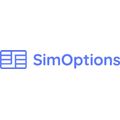GoMoWorld permet aux utilisateurs d'accéder à Internet dans plus de 170 pays grâce à une seule eSIM. Une fois que vous avez installé votre eSIM, vous pouvez la réutiliser partout dans le monde (pas besoin d'en installer une nouvelle et de répéter tout le processus). Avec une tarification transparente à partir de 3,99 € pour 7 jours, GoMoWorld garantit une solution simple et rentable pour rester connecté dans le monde entier.

GoMoWorld permet aux utilisateurs d'accéder à Internet dans plus de 170 pays grâce à une seule eSIM. Une fois que vous avez installé votre eSIM, vous pouvez la réutiliser partout dans le monde (pas besoin d'en installer une nouvelle et de répéter tout le processus). Avec une tarification transparente à partir de 3,99 € pour 7 jours, GoMoWorld garantit une solution simple et rentable pour rester connecté dans le monde entier.
Code Promo
Forfaits de données eSIM GoMoWorld pour le Tchad
Questions fréquemment posées
GoMoWorld offre-t-il une eSIM à données illimitées pour le Tchad ?
Non, GoMoWorld ne propose pas de forfait eSIM à données illimitées pour Tchad. Les seuls forfaits disponibles pour les voyageurs vers Tchad sont des forfaits de données fixes allant de 200 Mo à 3 Go, chacun valable 30 jours sauf l’option de 200 Mo qui est valable 7 jours. Par exemple, un forfait de 3 Go coûte $35.36 USD, un forfait de 2 Go coûte $23.57 USD et un forfait de 1 Go coûte $12.96 USD. Choisir l’un de ces forfaits de données fixes peut être plus économique à moins que l’utilisateur ne consomme énormément de données.
GoMoWorld propose-t-il une eSIM du Tchad avec numéro de téléphone et SMS ?
GoMoWorld ne propose pas de forfaits eSIM pour le Tchad qui incluent un numéro de téléphone ou la capacité SMS. Les seules options de ce fournisseur pour le Tchad sont des eSIM uniquement de données. Les voyageurs peuvent toujours utiliser des services VoIP tels que WhatsApp ou Telegram sur la connexion de données pour les appels et la messagerie.
Combien de forfaits de données GoMoWorld propose-t-il pour le Tchad ?
GoMoWorld propose quatre forfaits eSIM à usage unique dans le Tchad. Les forfaits varient entre environ 4, 70 $ et 35, 36 $, et leurs limites de données vont de 200 Mo à 3 Go, avec des périodes de validité allant de 7 à 30 jours. Le tethering est autorisé sur ces forfaits.
Résumé avec Gen AI. Dernière mise à jour:




